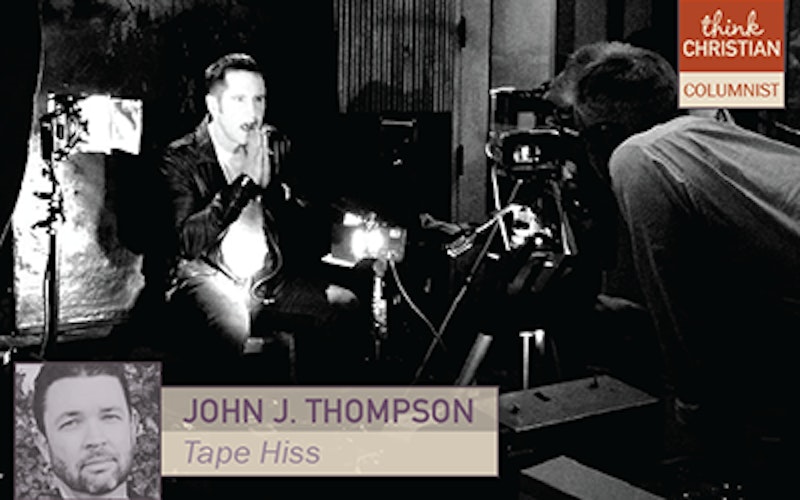
Music
Nine Inch Nails’ unlikely light
Nothing makes an abyss darker than the occasional presence of light. For a quarter of a century now, Nine Inch Nails has made a name by trading in brutal, nihilistic, hedonistic despair set to subversively commercial riffs. While I’ll admit to having a soft spot for the band’s breakthrough 1989 single “Head like a Hole,” in general Nine Inch Nails never really did much for me. Like a horror movie with no good guys - no beauty being threatened by evil - I just found the bulk of their material narcissistic and boringly bleak.
There has always been one man at the creative helm of NIN: Trent Reznor, who in many ways embodies the postmodern chaos of the alternative-music revolution of the 1990s. Like so much American culture, Reznor’s art never broke free from his own self-destructive nature. It was all darkness, no light, and possessed of an incessant desire to shock. While NIN certainly struck a chord with millions of disaffected young people, the advent of digital distribution empowered an era of niche marketing that Reznor has craftily taken advantage of. His well-documented squabbles with record companies led to some of the most innovative direct-to-fan distribution schemes of the nascent digital era. For NIN fans, this band is more community than commercial product - like a version of The Grateful Dead for dispossessed Generation Xers.
Reznor’s gift for capturing ghosts and shadows in zeros and ones is in fine form, but it seems he may finally be looking for answers somewhere beyond himself.
With the release of Hesitation Marks, Reznor has re-connected with a major label and seems intent on achieving new creative and commercial heights. The result is the most accessible, interesting and spiritually engaging work of his career. The major theme seems to be change and the songs include prayers, confessions, rants, pleas and a surprising sense of peace comingled with pain. Maybe this comes from Reznor’s personal recovery from addiction or maybe he’s in sync with Billy Corgan’s recent claim that God is the last shocking thing for rock to explore. Whatever the case, Hesitation Marks is a completely new aesthetic for Nine Inch Nails that somehow stays true to the brand. It is melodic yet sonically sparse - meticulously engineered to sound inviting and warm despite its synthetic DNA.
Not that Hesitation Marks is full of “Kum Ba Yah” moments. Far from it. The themes of desolation and despair remain, though with a sense that the darkness may not be the final answer it once seemed. Even the profanity-laden and ridiculously catchy “All Time Low” seems more like an admission to personal failure than a rallying cry for rebellion. The aforementioned prayer, “Find My Way,” contains what may be the most shocking NIN lyrics yet:
Lord my path has gone astray
I'm just trying to find my way
wandered here from far away
I'm just trying to find my way
you were never meant to see
all those things inside of me
now that you have gone away
I'm just trying to find my way
The presence of this and other moments of light and hope make the bleakness even more effectively unsettling in many ways. Reznor’s gift for capturing ghosts and shadows in zeros and ones is in fine form, but it seems he may finally be looking for answers somewhere beyond himself. He seems to at least recognize the presence of a good God somewhere through the fog. In the process he unleashes his musically creative best, incorporating analog synth sounds, jagged rhythms and even harmonies.
In many ways Hesitation Marks feels like a reflection on Psalm 139. “Where can I go from your Spirit?” the writer begs. “If I go up to the heavens, you are there; if I make my bed in the depths, you are there.” Reznor knows plenty about the depths. It’s encouraging to hear him daring to explore the potential for deliverance, acceptance and peace this time around.
Topics: Music, Culture At Large, Arts & Leisure